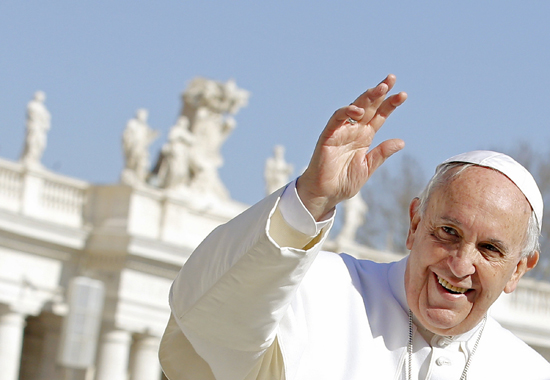Married Priests Would Be the Wrong Solution
By Tina Beattie
Liberal Catholics tend to be uncritical in their embrace of progress. Women’s ordination becomes conflated with married priests as part of this progressive liberalism, but the concept of progress is itself deeply flawed. It is a myth rooted in modern Western superiority over other historical and cultural traditions. Rather, we must ask how our faith allows eternity to shimmer within the contingencies and complexities of history, and for that we must nurture the sacramental imagination. When I converted to Catholicism in the 1980s, I was living in Zimbabwe and was attracted by the Catholic justice and peace movement, but justice and peace are not exclusive to the Catholic faith. What is unique is the liturgical and sacramental beauty of the Catholic tradition, rooted in a theology of grace that encourages us to see the shimmer of divine love in every aspect of the material world. The priesthood belongs within this sacramental mystery, and I do not want to see its mystical potency dissolved into bourgeois respectability. Women priests might be the catalyst the Church needs to reawaken our exhausted rituals to the mystery of the incarnation, communicated to us in the graced sacramentality of creation which is focused with particular intensity and presence in the sacrament of the Eucharist. Married priests would in my view dissipate rather than intensify this mystery. Gone would be the total giving of self in service to Christ and neighbour to which the celibate priesthood at its best witnesses – a witness that, from the perspective of our sex-obsessed culture, is absurd. Gone would be the challenge to see in our ordinary, fallible parish priest a glimmer of the extraordinary miracle of a particular kind of vocation that makes no sense at all from the perspective of secular scepticism. The ordination of celibate women would be a more coherent and potent symbol of these sacramental mysteries than the ordination of married men, which will inevitably dissolve the last traces of otherness that the Catholic Church represents and absorb us into a secularised and demystified culture. Nor is it true that just because a priest is married he is likely to be more woman-friendly than one who isn’t, or that married men are less likely to abuse children. Sex abuse is common to all sectors of society – it is a problem of power and masculinity, not of celibacy – and some of the worst forms of misogyny flourish in marriage. Only when women are fully incorporated into the sacramental mystery of the priesthood will we be in a position to ask how the sacramental mystery of marriage might belong within that vocation. To do it the other way round is to diminish these mysteries in the interests of expediency, driven by an unacknowledged imperative to do whatever it takes to avoid the question of women priests. Tina Beattie is Professor of Catholic Studies at the University of Roehampton
|
.
Any original material on these pages is copyright © BishopAccountability.org 2004. Reproduce freely with attribution.
